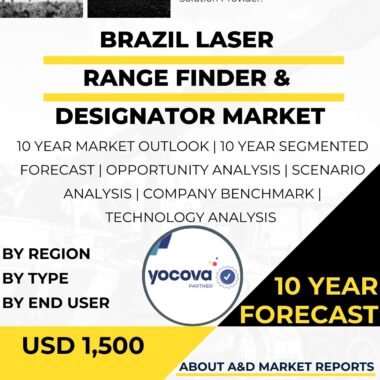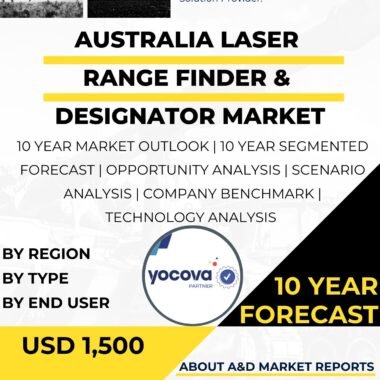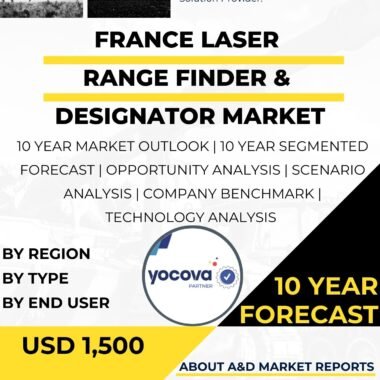Description
Brazil’s Copper Demand in the Global Aerospace & Defense Industry
Copper’s exceptional electrical conductivity, thermal properties, and durability make it a critical material in the Brazil Copper demand in aerospace and defense sectors. It is integral to aircraft manufacturing, radar systems, communication equipment, and military infrastructure, ensuring reliable performance in demanding applications.
Copper in Brazil’s Aerospace Sector
In Brazil’s aerospace industry, copper is vital for producing aircraft, avionics systems, and electrical components. Its high conductivity supports efficient power distribution and signal transmission in wiring, connectors, and circuitry. Brazil’s growing use of copper reflects its commitment to advancing aviation technologies and strengthening its position in the global aerospace market, which includes contributions from companies like Embraer, a leading aircraft manufacturer.
Copper in Brazil’s Defense Sector
In defense applications, copper is essential for radar systems, communication devices, and military infrastructure. Its ability to handle high-frequency signals and dissipate heat enhances the reliability and performance of critical defense equipment. This aligns with Brazil’s focus on bolstering national security through advanced technological capabilities.
Strategic Collaborations
Brazil fosters partnerships with international aerospace and defense organizations, research institutions, and copper manufacturers. These collaborations drive innovation, facilitate knowledge exchange, and promote the standardization of copper materials to meet global industry standards. Such efforts ensure Brazil remains competitive in addressing the evolving needs of the aerospace and defense sectors.
Investment in Research and Development (R&D)
Brazil’s success in leveraging copper is supported by significant investments in R&D, focusing on materials science, metallurgy, and advanced manufacturing. Universities and innovation centers in Brazil develop high-performance copper alloys tailored to the rigorous demands of aerospace and defense applications, keeping the nation at the forefront of material advancements.
Future Outlook and Strategic Importance
As aerospace and defense technologies evolve, the demand for high-conductivity, durable materials like copper continues to grow. Brazil’s expertise in copper applications enhances its contributions to global markets while supporting national security objectives. The nation’s focus on innovation and collaboration ensures its copper-based solutions meet the stringent requirements of modern aerospace and defense systems.
Conclusion
Brazil’s increasing copper demand in the aerospace and defense industries underscores its commitment to technological advancement and national security. Through strategic partnerships, robust R&D, and the application of copper’s unique properties, Brazil solidifies its role as a key contributor to the global aerospace and defense sectors, driving innovation and reliability in critical applications.
Table of content
Table Of Contents
1 Market Introduction
1.1 Market Introduction
1.2 Market Definition
1.3 Market Segmentation
1.4 10 Year Market Outlook
2 Market Technologies
3 Global Market Forecast
3.1 Global Market Forecast
3.2 By Component
3.3 By Process
4 South AmericaMarket Trends & Forecast
4.1 Drivers, Restraints And Challenges
4.2 PEST
4.3 Market Forecast
4.3.1 Market Forecast By Component
4.3.2 Market Forecast By Process
4.4 Scenario Analysis
4.5 Key Companies& Profiling
5 Brazil Analysis
5.1 Current Levels Of Technology Maturation In This Market
5.2 Market Forecast
5.2.1 Market Forecast By Component
5.2.2 Market Forecast By Process
5.3 Scenario Analysis
5.4 Country Defense Budget (Historical and 10- year forecast)
5.5 Defense Budget Category Spending- 10- year forecast
5.6 Procurement Analysis
5.7 EXIM Data
5.8 Patents
6 Opportunity Matrix
6.1 By Component
6.2 By Process
7 Scenario Analysis
7.1 Scenario 1
7.1.1 By Component (Scenario-1)
7.1.2 By Process(Scenario-1)
7.2 Scenario 2
7.2.1 By Component (Scenario-2)
7.2.2 By Process(Scenario-2)
8 Company Benchmark
9 Strategic Conclusions
10 About Aviation And Defense Market Reports
Segments
By Component
By Process
List of Tables
Table1: Global Market Forecast, Copper demand in Aerospace & Defense Industry
Table2: South America Market Forecast, Copper demand in Aerospace & Defense Industry
Table3: South America Market Forecast, By Component
Table4: South America Market Forecast, By Process
Table5: South America, Scenario Analysis
Table6: Brazil Market Forecast, Copper demand in Aerospace & Defense Industry
Table7: Brazil Market Forecast, By Component
Table8: Brazil Market Forecast, By Process
Table9: Brazil, Scenario Analysis
Table 10: Brazil Defense Budget 10 Year Forecast
Table 11: Brazil, Defense Budget Category Spending- 10- year forecast
Table 12: Brazil, Procurement Analysis
Table 13: Brazil, EXIM Data Analysis
Table 14: Brazil, Opportunity Analysis, By Component
Table 15: Brazil, Opportunity Analysis, By Process
Table 16: Brazil, Scenario Analysis, By Component
Table 17: Brazil, Scenario Analysis, By Process
Figure 1: Market Segmentation, Brazil Copper demand in Aerospace & Defense Industry
Figure 2: Key Technology Analysis, Copper demand in Aerospace & Defense Industry
Figure 3: Global Market Forecast, Copper demand in Aerospace & Defense Industry
Figure 4: South America, Market Forecast, Copper demand in Aerospace & Defense Industry
Figure 5: South America, Market Forecast, By Component
Figure 6: South America, Market Forecast, By Process
Figure 7: South America, Scenario Analysis
Figure 8: Brazil, Market Forecast, Copper demand in Aerospace & Defense Industry
Figure 9: Brazil, Market Forecast, By Component
Figure 10: Brazil, Market Forecast, By Process
Figure 11: Brazil, Scenario Analysis
Figure 12: Brazil, Defense Budget 10 Year Forecast
Figure 13: Brazil, Defense Budget Category Spending- 10- year forecast
Figure 14: Brazil, Procurement Analysis
Figure 15: Brazil, EXIM Data Analysis
Figure 16: Brazil, Opportunity Analysis, By Component
Figure 17: Brazil, Opportunity Analysis, By Process
Figure 18: Brazil, Scenario Analysis, By Component
Figure 19: Brazil, Scenario Analysis, By Process
Figure 20: Company Benchmark




